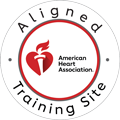Pediatric Advanced Life Support (PALS) certification, offered by the American Heart Association (AHA), equips healthcare professionals with the knowledge and skills needed to effectively respond to pediatric emergencies. This comprehensive course covers essential topics ranging from pediatric assessment to advanced life support techniques.
PALS certification holds immense importance for healthcare professionals working in settings where they may encounter pediatric patients in critical conditions. Whether in hospitals, pediatric clinics, or emergency medical services (EMS), having PALS certification ensures that healthcare providers are equipped to deliver timely and effective care to children in need.
What is AHA PALS Certification?
AHA PALS certification is a specialized training program designed to prepare healthcare providers to respond to pediatric emergencies with confidence and competence. It emphasizes the importance of early recognition, prompt intervention, and coordinated teamwork in improving outcomes for pediatric patients. The target audience for AHA PALS certification includes physicians, nurses, paramedics, and other healthcare professionals who may encounter pediatric patients in emergency situations. It is particularly relevant for those working in pediatric wards, pediatric intensive care units (PICUs), and emergency departments.
Pediatric emergencies present unique challenges, requiring specialized knowledge and skills to address effectively. PALS certification ensures that healthcare providers are well-prepared to assess, manage, and stabilize pediatric patients experiencing critical conditions such as cardiac arrest, respiratory distress, and shock.
Exploring Essential Course Content
Overview of Core Concepts Covered in the AHA PALS Course
- Pediatric Assessment:
The course covers comprehensive pediatric assessment techniques, including evaluation of airway, breathing, circulation, and disability. Healthcare providers learn to recognize signs of distress and prioritize interventions based on the patient’s condition.
Key assessment techniques include evaluating the child’s airway patency, breathing adequacy, circulation status, and neurological function. Providers learn to perform rapid assessments and identify life-threatening conditions promptly.
Call Us Now
Get the Best CPR Class in Tampa Today!
- Basic Life Support (BLS) Principles:
BLS principles in pediatric patients involve CPR techniques tailored to children’s unique physiology. Providers learn the correct compression-to-ventilation ratio and gain proficiency in performing high-quality chest compressions and rescue breaths.
CPR techniques for pediatric patients emphasize the importance of maintaining adequate chest compressions and providing appropriate ventilation. Providers practice hands-on skills to achieve optimal compression depth and rate.
- Pediatric Pharmacology:
Understanding pediatric pharmacology is critical for administering medications safely and effectively in emergency situations. The course covers medication dosages, administration routes, and indications for common pediatric emergencies.
Healthcare providers learn about pediatric medication dosages, calculations, and administration methods. Understanding the pharmacokinetics and pharmacodynamics of pediatric medications ensures safe and effective drug administration.
- Pediatric Cardiac Emergencies:
Pediatric cardiac emergencies, including arrhythmias, congenital heart defects, and cardiac arrest, are addressed in detail. Providers learn to recognize cardiac rhythms, interpret electrocardiograms (ECGs), and implement appropriate interventions.
Recognition and management of pediatric cardiac conditions are critical components of PALS training. Providers learn to identify shockable and non-shockable rhythms, perform defibrillation when indicated, and initiate advanced life support interventions.
- Team Dynamics and Communication:
Effective teamwork and communication are essential components of pediatric resuscitation. Providers learn to function efficiently as part of a resuscitation team, delegate tasks, and communicate clearly to ensure coordinated care.
Effective teamwork requires clear communication, leadership, and role clarity. Providers practice communication techniques, such as closed-loop communication and brief/debrief protocols, to enhance team performance during resuscitation scenarios.
Study Strategies for Effective Learning
- Utilizing the AHA PALS Provider Manual and Supplementary Resources:
The AHA PALS provider manual serves as a comprehensive resource for course content. Providers should familiarize themselves with the manual and use supplementary resources, such as online modules and practice quizzes, to reinforce learning.
- Participating in Hands-On Practice Sessions and Simulations:
Hands-on practice is essential for building proficiency in PALS skills. Providers should participate in simulated scenarios, mock codes, and skill stations to apply theoretical knowledge in practical settings.
- Collaborating with Peers for Group Study and Practice Scenarios:
Group study sessions provide an opportunity for collaborative learning and skill reinforcement. Providers can engage in case discussions, role-playing exercises, and peer feedback sessions to enhance their understanding of PALS concepts.
Healthcare providers should stay informed about updates to PALS guidelines and protocols. Regular review of evidence-based practice recommendations ensures adherence to current standards of care and optimization of patient outcomes. Continuing education is essential for maintaining competency in pediatric emergency care. Providers should seek opportunities for advanced training, attend conferences, and pursue certifications to expand their knowledge and skills.
AHA PALS certification is essential for healthcare professionals working with pediatric patients, providing comprehensive training in pediatric assessment, basic life support principles, pediatric pharmacology, pediatric cardiac emergencies, and team dynamics and communication. Healthcare professionals are encouraged to pursue AHA PALS certification to enhance their ability to respond effectively to pediatric emergencies and improve patient outcomes.
Mastering essential course content is crucial for providing optimal care to pediatric patients in emergency situations. Healthcare providers should prioritize ongoing learning and skill development to ensure readiness and competence in pediatric resuscitation scenarios.
In conclusion, “Mastering AHA PALS: Dive Deep into Essential Course Content” provides a comprehensive and immersive learning experience for healthcare providers seeking to enhance their skills in pediatric advanced life support. By enrolling in our program, participants gain invaluable knowledge and practical training to confidently handle critical pediatric emergencies. Whether you’re pursuing CPR certification in Tampa or PALS certification in Tampa, our courses at CPR Classes Tampa offer the highest standard of education, ensuring that healthcare professionals are equipped to save lives effectively. Join us today to experience stress-free, hands-on training and become part of the best CPR community in Tampa!


